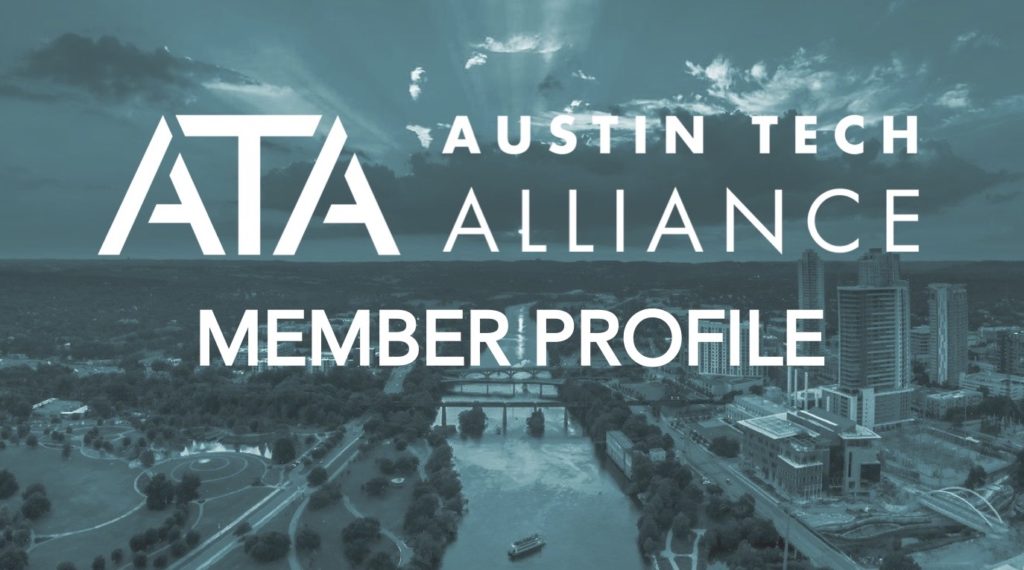In order to highlight Austin Tech Alliance’s growing membership of individuals who support our mission to promote civic engagement in Austin’s tech sector, this is a regular feature profiling members of ATA.
Up now: Nathan Ryan.
 Introduce yourself and where you work in Austin’s tech sector.
Introduce yourself and where you work in Austin’s tech sector.
My name is Nathan Ryan, and I recently founded Blue Sky Partners with my friends Matt Glazer and Tim Seaton. We think the secret sauce comes from concentrating on systems thinking in four areas: values, culture, growth, and scale. Based on that belief, we focus on two things: offering affordable executive consulting, primarily for tech startups and nonprofits, to help establish those foundations, and then ongoing assistance to adapt the foundational systems we helped create as the company grows.
I’m also on the Board of Directors of Friends of Austin Neighborhoods (focused on affordable housing and healthy neighborhoods), the Board of Advisors for Doing Whatever It Takes (an after school program teaching entrepreneurship to high schoolers), and also volunteer with the Texas Civil Rights Project.
What do you love about Austin?
That’s tough. There’s so much I love about Austin—its art, its collaborative culture, the tech scene, the food, the good coffee and cocktail bars. It’s all amazing.
That said, what I love most about Austin is that it’s a city where people move to better themselves and build things.
I was born near Houston, in Conroe, but grew up in Los Angeles. LA’s not exactly a small town, nor is it lacking activism. But I’ve never lived in—or really even spent time in—a city that feels as engaged as Austin. I don’t know anybody here in town who’s not hustling to build something, even if they have a full-time job. Everybody’s got a band, business, cause, issue, or organization. In some cases, I think that can lead to redundancy (lots of groups vying for attention on the same issues). But sometimes, because of that redundancy, we’re able to create an environment for significant, multifaceted conversations, and allow Austinites to gain a broader perspective on issues that matter most to them.
The CodeNEXT debate is a good example. Most people I know here in town understand that the city’s land use code is the kind of thing that affects everybody, so they’re going out of their way to be informed and involved in the commenting process, whether that’s through an Austin Tech Alliance Tech Town Hall, a council meeting at City Hall, one of the many workshops in town, or the commenting process online.
There could always be more participation when it comes to important issues like this, but remember we’re talking about people my age—millennials—getting involved in land use and development code for the fastest growing city in the U.S.
If that’s not exciting and inspiring, I don’t know what is.
What do you think are the community’s biggest challenges?
I’m going to boil it down to one broad challenge that I think houses a bunch of other challenges underneath it, and that’s inclusivity.
Because we’re growing fast due to our focus on startups, tech, arts, and culture, and because we’re a “blue” dot in a “red” state, Austin is uniquely positioned to have a lot of hard conversations that other cities might shy away from. And I think the conversation we need to have is about whether or not inclusivity is really a value that’s going to not only reflect itself in our rhetoric, but in our policies as well.
For example, affordable housing is the kind of inclusive policy outcome almost everybody would say they want, but not every proposed policy would make that a reality. Greater density will increase affordability, and that’s the kind of goal that should be kept in mind when assessing the actual code. We don’t just want an aspirational message that conceals a policy that will ultimately make our city less affordable and less inclusive.
That’s just one example, though. This disparity between what is said and what gets done exists across a whole spectrum of issues, but the bottom line is, if inclusivity truly is a core value, we should be pushing for policies that will reflect that value in our culture. We’re in a city where it’s possible to have those conversations, and I think it’s on us to make sure we have them.
Why is it important for the tech community to become more civically engaged?
Simple: because tech tends to produce some pretty cool sh*t, we know how to think holistically about issues, and we like to get involved in the details.
When I say we need to make sure that inclusivity is a value represented in the daily life of our city as a result of the laws we pass and the people we elect, that’s design thinking. So tech can bring a lot of efficiency and alignment to the process of making life better in the public sphere.
On the other hand, it’s important for the tech community to actually understand the problems Austin faces and understand the role tech plays in our culture. A lot of great things have come from technological advancement (Tesla!), but many unintended negative consequences have bubbled up as a result of technology as well (#fakenews).
The more the tech community is involved in the very real life of our city through the legislative process, the better the process can become, and the better tech can make real life for real people.

